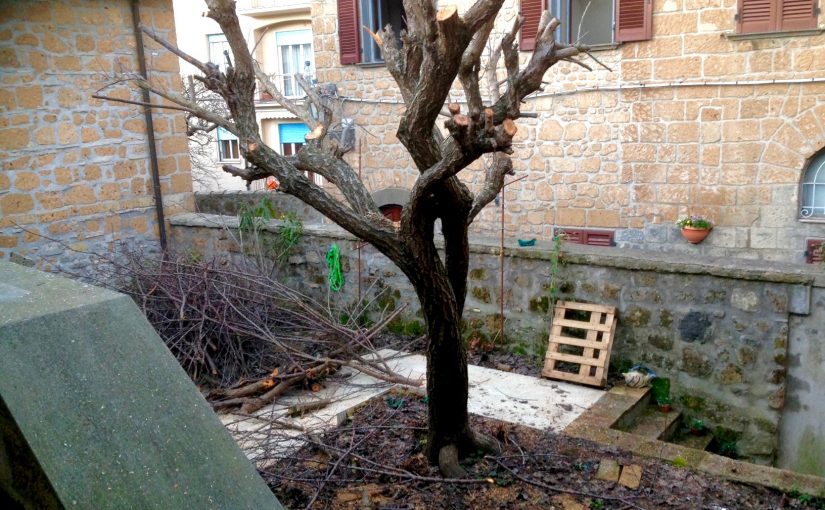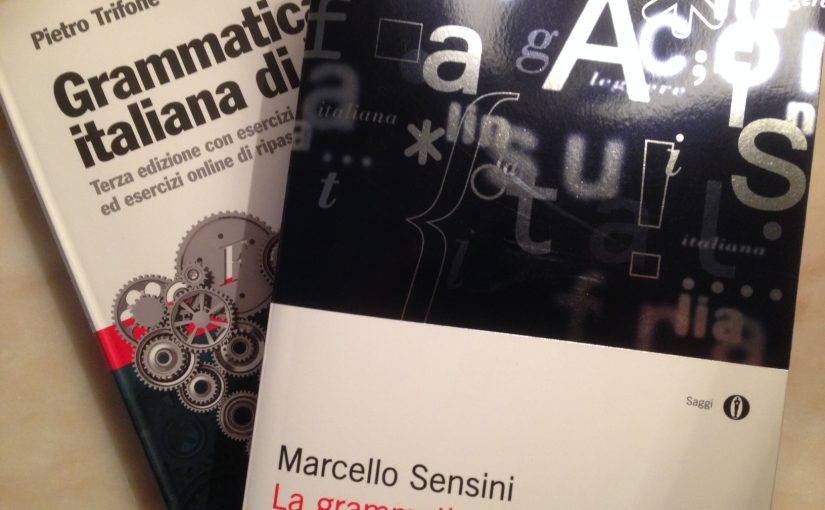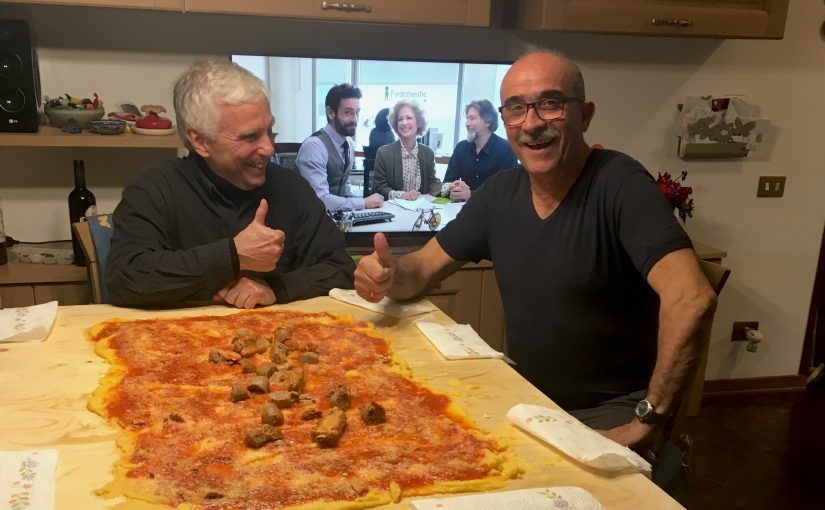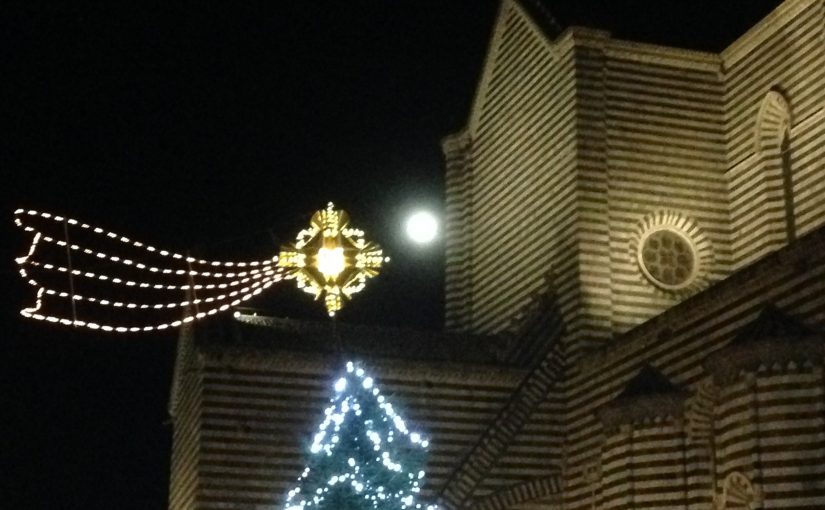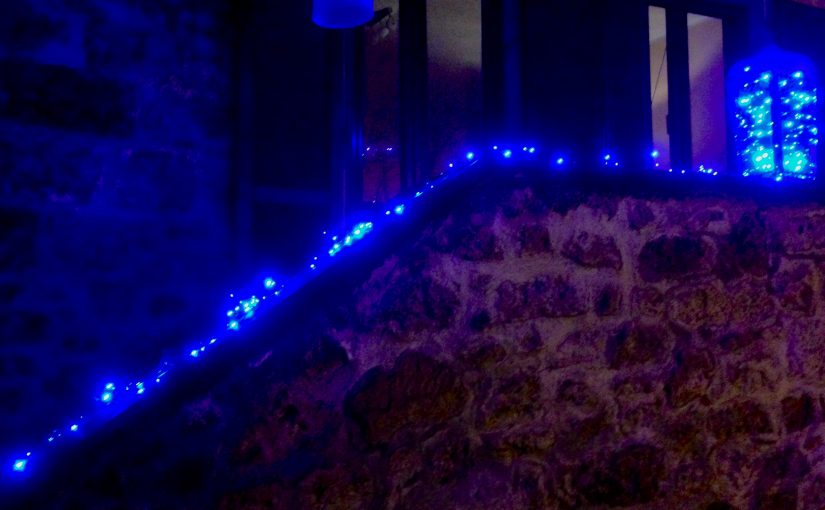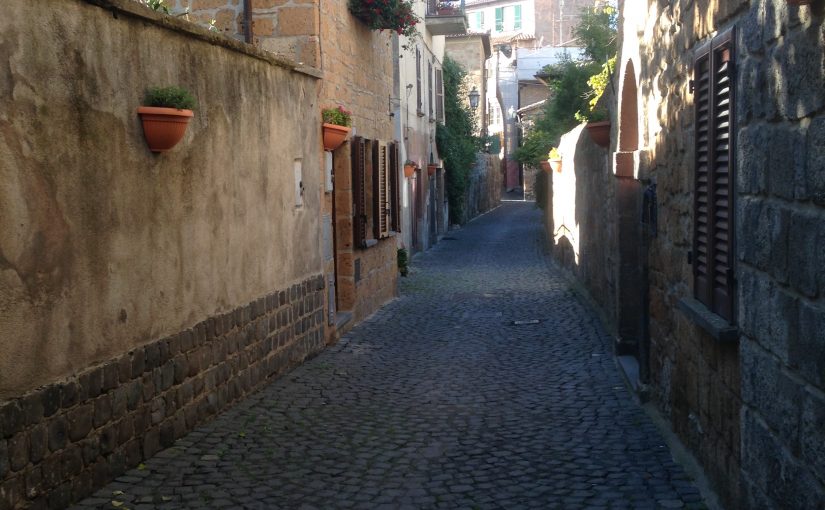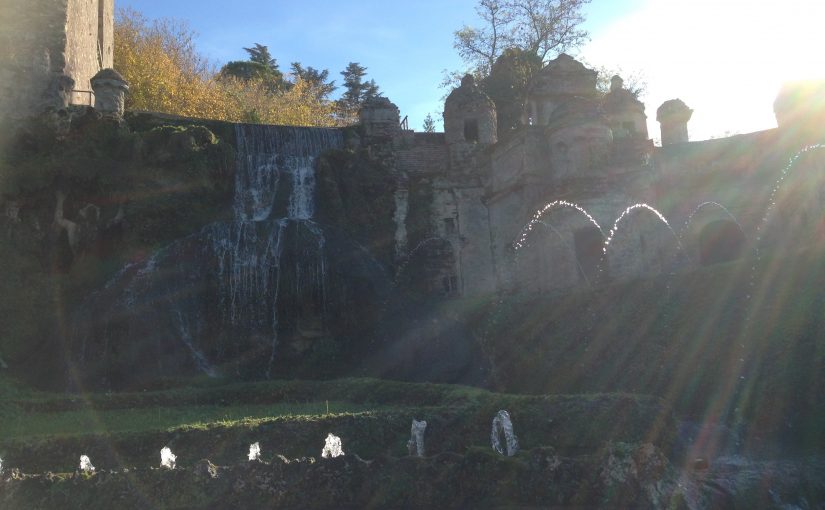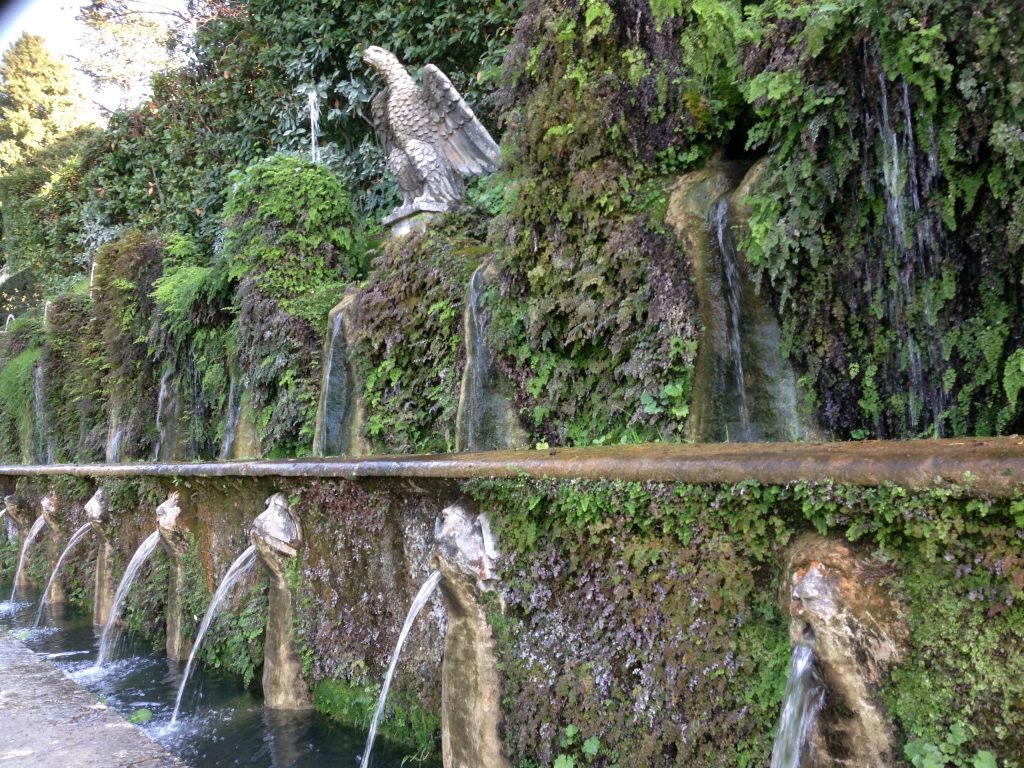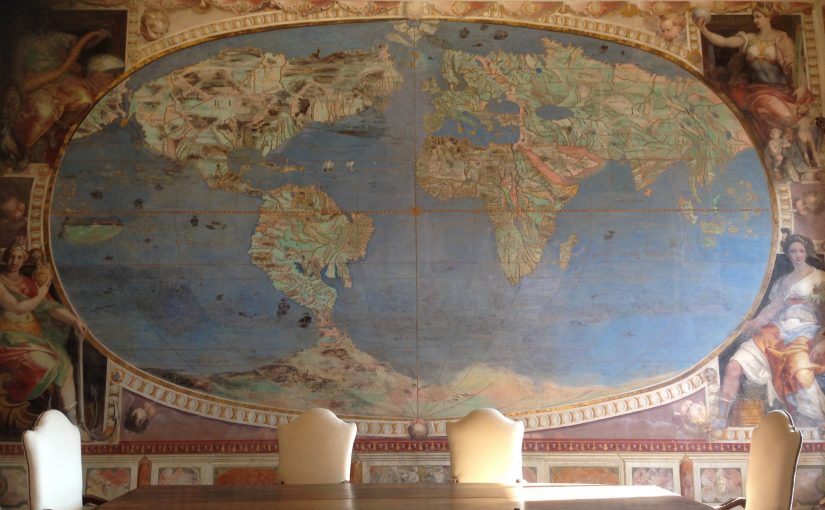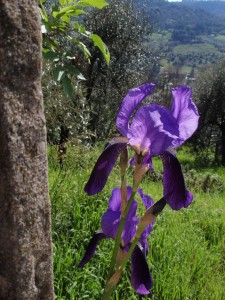Both sides of my family raised cherries, prunes, and apricots in California’s Santa Clara Valley right up until the electronics boom began in the early ’60’s, so when I was introduced to the cottage in Via della Pertiche, and to the apricot tree in its yard, it was like coming home. Childhood July’s were spent cutting “cots” at the Lopin “ranch”; fifty cents to fill a three-by-six foot wooden drying tray, surrounded by aunts and uncles and cousins who were raking in the cash through exercise of the same skill. My grandmother cooked elaborate lunches, and plied us with fresh lemonade which the afternoon heat turned into ambrosia. July was my favorite month.
I don’t remember when that July tradition began to wane. Looking at it from this perspective, it should have continued into the morning that the “ranch” was sold. Maybe it did. Or maybe by the time I was into my twenties the July gatherings had lost their glow for me, had become passe. Or perhaps my uncle, who did all the heavy lifting, had grown weary and hired day laborers.
I know that after my grandmother died, there were a few years of awkwardness as the ten acres were divided between the three brothers. The will my grandmother left behind was old school, probably drawn up according to her husband’s wishes who predeceased her by ten years, so the two sisters (my mother being one) received a bit of cash, but no land. By the early seventies some of the property had been sold, and the remainder was taxed at residential or commercial rates, so it didn’t pay to grow fruit anymore.
The apricot, however, still holds a special place in my heart, and even though I had never been fully initiated into the mysteries of its cultivation, elements couldn’t help but be absorbed. In 1980, I bought a small house in Santa Cruz with an apricot tree in the back yard. In fact, the small yard was only the apricot and a slab of concrete. It’s a miracle the tree survived.
My first February in residence, Dad saw fit to pass on the particulars of pruning an apricot: trim fruit-bearing branches back to just beyond the third lateral bud, remove suckers wherever they appear, trim new growth off the trunk and principal branches, cut outliers so as to shape a well-balanced tree that fits within an imaginary sphere, its center just above the crotch, that is, where the trunk forms a “y”.
As soon as I looked at the giant apricot in my yard on Via delle Pertiche, I knew it needed a serious pruning; it had been years, and the only one of Dad’s rules that might possibly apply would be the last. All my neighbors agreed, and starting last April, reminded me with astonishing regularity. “In February,” I always replied. “Oh, yes February is best. But don’t forget!” Forget? Between the scandal the tree had caused the neighborhood and memories of Dad counting out to the third lateral bud with assurances that a good tree, regularly pruned, would experience only mild fluctuations in crop size, year to year, there was no way I was going to forget. In fact, I began planning the operation in August. By January, pruning the apricot had become an obsession.
February arrived wet. Given that at least half the tree had to be approached with the ladder sitting on soft soil, I deemed it best to wait for drier weather. Then, starting the 9th, a week of rainless, relatively warm days was predicted. I sent an SMS to my neighbor Renzo to ask if I could borrow his extension/a-frame combo ladder. He was hauling it over before I could open the gate. I gathered my tools and contemplated the structure of the tree: how best to approach branches, what parts would support the ladder, and in which mode, where to begin. Countries have been conquered with less forethought.
“So, what are you using for a saw,” Renzo asked. I proudly showed him my little pruning saw with the red plastic handle. He agreed that it was a good saw, but his eyebrows involuntarily raised. The skepticism registered.
I began after lunch. Using my extendible handle pruning sheers, I thinned out the first few branches, and threw the cuttings into a corner. When most of the small branches were down, I climbed with my pruning saw and went to work on the larger. Five hours later, I had done about a quarter of the tree, I was exhausted, and a room-sized pile of branches stood ready to be sorted into firewood. I examined the rest of the tree. The remaining branches would be harder to reach, they were thicker, and there were at least twenty of them. This called for a visit to Frangelico at the ferramenta (hardware). His brother, Raffaello, had suggested back in October that if I needed one, I could rent a chainsaw. That suddenly sounded like a great idea.
But reaching some of the branches was going to be a stretch. Hefting a gas powered chainsaw, even a small one, with one hand, while precariously balanced on an aluminum ladder didn’t thrill me much. So, I asked Frangelico if he had an electric saw for rent. He did not, but offered to do the job himself a week from Sunday; that would have been February 19th. I thanked him, but with reservations.
What I remembered about why you pruned in February – the rule for California, and therefore applicable to Umbria – is that it falls at the very beginning of the budding process. Too early, the wounds won’t heal quickly and that exposes the tree to disease. Too late, the tree will be confused and not put energy into developing new branches, or at least not as effectively. So that extra week made me nervous.
Online research revealed that an electric chainsaw – lightweight, and of adequate size and power – could be had for a reasonable price, and would be delivered by Wednesday. It was going to take a couple of days to sort wood anyway, and Wednesday was five days earlier than Frangelico would have been able to start, so I ordered it. “What would you think of a chainsaw,” Renzo asked from his balcony a few minutes later. I told him about my order. “I have a little gas one you can borrow, but it’s always flooding, so probably you’re better off sticking with your electric.” I felt reassured.
The saw arrived a day early, so I visited Frangelico for an extension cord and oil, assembled the machine, and began the pruning of the apricot with great and private ceremony on Wednesday after lunch. To allow the new saw to become familiar before I took it up a ladder, I began by sorting the pile of trimmings in the corner. It took all afternoon.
On Thursday, I gazed skyward and plotted the cuts. Progress was much faster in the twenty-first century than it had been a week before in the fifteenth, and I was able to take down all but three of the major branches by five-thirty. “Buona sera!” I heard from over the wall; Renzo returning home from work. I opened the gate. He approved of my progress. I asked for his advice on the remaining branches, the most difficult to reach. “I’ll do them.” Why? “I’m taller?” We’re about the same height. “I’ll do them, anyway.”
He put down his groceries, peeled off his jacket, planted the ladder with no thought at all, grabbed the saw and was into the tree like a monkey in a matter of seconds, wielding the motosega like a butter knife. Branches fell in perfect order. I gawked, amazed. Ten minutes later he was on the ground again. As I dragged felled wood towards the already enormous piles, he explained; “I used to cut trees for lumber, trees this big,” he gestured a trunk the diameter of a large garbage can. “It was like climbing back onto a saddle just now. Thanks for letting me do it.”
Yesterday, I got through a third of the pile, sorting it into twigs for tinder, small branches for kindling, and logs. The picture attached shows the yard at the end of that day’s work and only half the pile is visible. Today, I got the invisible half sorted, and tomorrow, I’ll be able to finish so the garden can gradually be put back into shape for spring. It’s hard work, lovely work, and as I grow older, physically easier work – which makes no conventional sense, but I’ll take it.
I’ll miss the apricots this summer – if, after such a radical pruning there are any at all – because I have to return to the States for a new visa, but summer after that there is sure to be a good crop. Maybe even enough to cut and can or dry; just for the sheer heck of it. Fifty-cents a tray, anyone?
